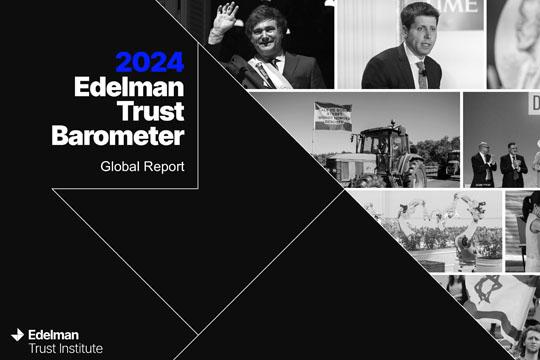- Global (EN)
- Africa (EN)
- Australia (EN)
- Belgium (EN)
- Brasil (PT)
- Canada (EN)
- Canada (FR)
- China (CN)
- France (FR)
- Germany (DE)
- Germany (EN)
- Hong Kong, China (EN)
- India (EN)
- Indonesia (EN)
- Ireland (EN)
- Italy (IT)
- Italy (EN)
- Japan (JP)
- Korea (KR)
- Latin America (ES)
- Malaysia (EN)
- Middle East (EN)
- Netherlands (EN)
- Spain (ES)
- UK (EN)
- Global (EN)
- Africa (EN)
- Australia (EN)
- Belgium (EN)
- Brasil (PT)
- Canada (EN)
- Canada (FR)
- China (CN)
- France (FR)
- Germany (DE)
- Germany (EN)
- Hong Kong, China (EN)
- India (EN)
- Indonesia (EN)
- Ireland (EN)
- Italy (IT)
- Italy (EN)
- Japan (JP)
- Korea (KR)
- Latin America (ES)
- Malaysia (EN)
- Middle East (EN)
- Netherlands (EN)
- Spain (ES)
- UK (EN)
- Gen Z is a tipping point for action in a polarized, social-first world. They hold immense influence and gravitational pull over every other generation.
- For Gen Z, brands are how they use their voice; their choices and preferences of brands serve as a testament to their values and actions. However, this dynamic breeds high expectations for brands -- and brands will face consequences if they don’t measure up.
- To earn Gen Z’s trust and minimize vulnerability, brands must ensure Gen Z consumers hear, see, and believe their values and intentions.
Gen Z (aged 18-27) is opinionated and vocal, shaped by the seemingly unprecedented number of challenges facing the world today. This vocalness can intimidate companies; for some, communication paralysis manifests, making it difficult for companies to commit to actions that earn and maintain the generation’s trust.
Yet, brands cannot afford to bury their heads in the sand. Gen Z makes up 40 percent of the consumer market worldwide, and wields tremendous influence over every other generation, across not just what we buy, but how we live and what we believe.
This relationship is bidirectional, with Gen Z trusting business more than any other institution. In fact, Gen Z looks to brands far beyond just a transactional purchase; they use brands to express who they are, connect with similar people, and determine who they don’t share values with.
In these polarized and fraught times, to earn and keep Gen Z’s trust and loyalty, brands must define their permission space, commit to it, and communicate actions within it clearly. To start this process, these are three recommendations for navigating the waters of Gen Z and coming out the other side better than ever:
1. Recognize that Gen Z’s affinity for brands sets them apart
While all generations are concerned with what a brand represents, Gen Z feels particularly attached to brands that represent their reality, help them express themselves, and create a likeminded community.
As the generation raised on social media, Gen Z has been bombarded with brand ads and influencer posts. They sift through an incredible amount of content to decide which people, products, and brands to embrace. Matching values with a brand makes that easier, and those choices reflect how Gen Z communicates their values to the world. According to the 2024 Edelman Trust Barometer Special Report: Brands and Politics:
- 84 percent of people globally report the need to share values with a brand to use it. Gen Z takes it a step further: Nearly 6 in 10 Gen Z feel a connection with people who use the same brands that they do.
- Brands not only help create an in-group, they serve as a proxy for young consumers to identify who they do not relate to. Forty-six percent of Gen Z judge people based on what brands they buy or use.
2. Understand the intersection of brands and politics
The Brands and Politics special report reveals that globally and across demographics, nearly 8 in 10 people see brands as political. Consumers also see silence as political, especially Gen Z, with 58 percent of them saying that if a brand doesn’t communicate its actions to address societal issues, they assume it is doing nothing or hiding something. This means that the politicization of a brand, regardless of the actions it takes – or doesn’t take – is unavoidable.
Brands must recognize that even if they decide not to address a societal issue, Gen Z sees them as taking a stance.
3. Define brand and stakeholder values, then execute
“Silence is golden” is no longer the key to success. Brands can figure out which societal issues to act on by first defining their brand values and their stakeholder values, and then considering those in the broader political and cultural context.
Once a brand acts, ensure it reaches Gen Z in a way that information is consumed best.
- For Gen Z, social media is the battleground for trust. Among those who were upset by a brand in the last year, Gen Z and Millennials are most likely to have learned about it on social media. Any bad news about a brand is going to spread on social media, so be proactive in sharing and amplifying the good.
- Brands can also leverage influencers to not only showcase a product’s function, but to highlight the brand’s work in the world. Thirty-two percent of Gen Z (up 11 points since November 2020) say an influencer has said something that increased their trust in a brand over the last year. This is also why it is key to thoroughly vet and only hire influencers who are a true fit.
As a business and brand, targeting Gen Z consumers is fundamental – and inevitable – to maintain cultural and commercial relevance. Only by defining their permission space, committing to it, and communicating actions within it clearly can brands and businesses continue to build trust with Gen Z.
Amanda Edelman is the Chief Operating Officer of Edelman’s Gen Z Lab





